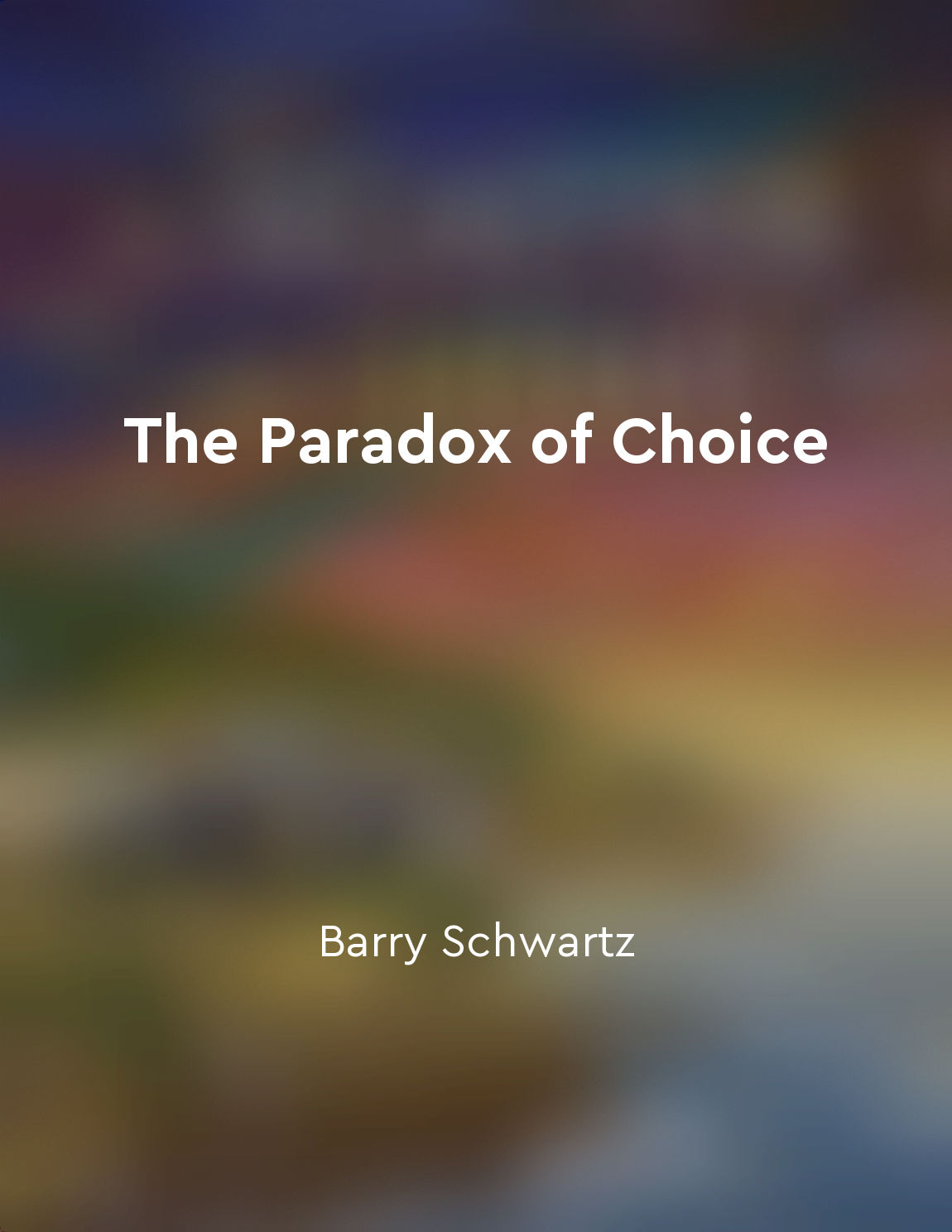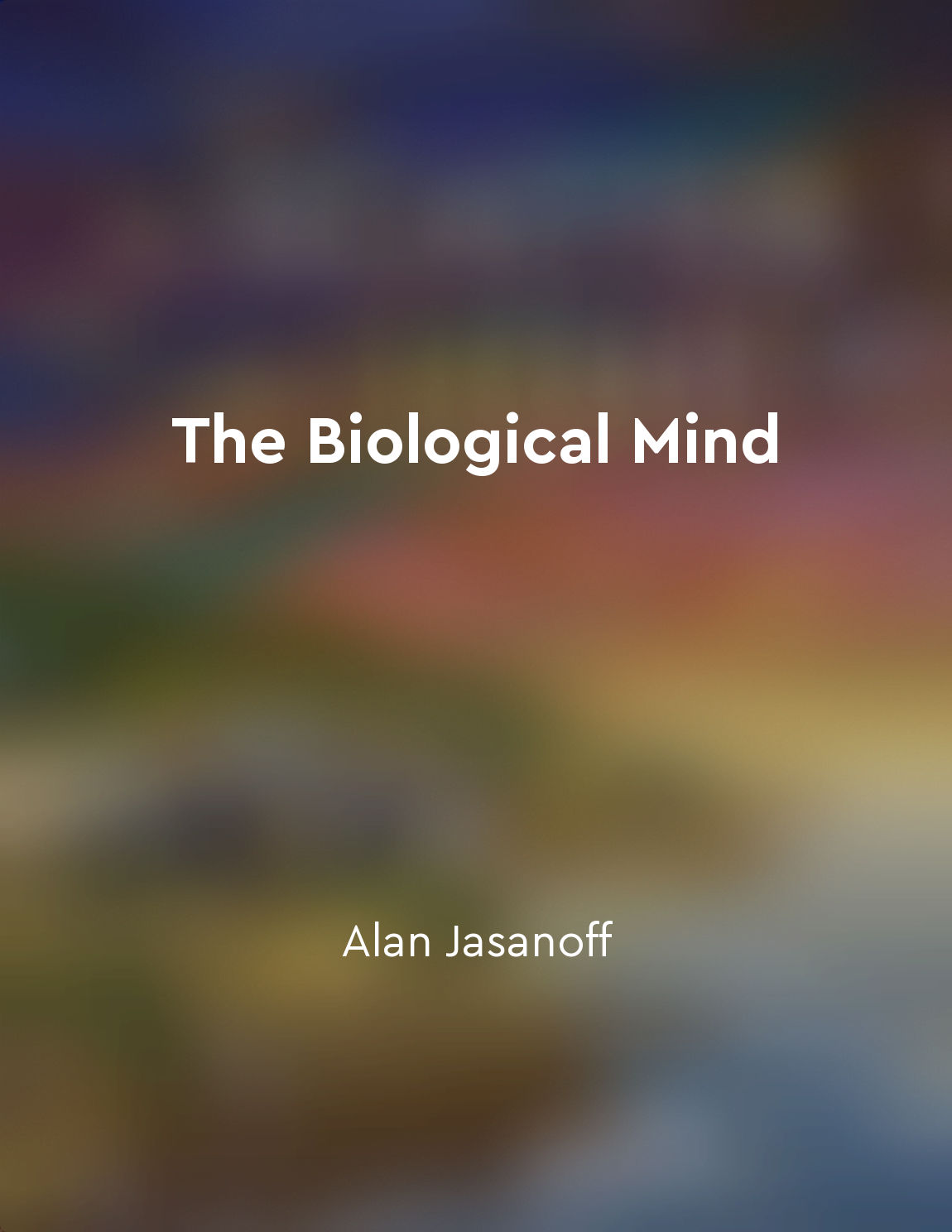Restricting choices can lead to more fulfilling outcomes from "summary" of The Paradox of Choice by Barry Schwartz
When faced with a myriad of options, we often believe that more choices will lead to better outcomes. However, this assumption is challenged by the idea that an abundance of choices can actually lead to feelings of anxiety, dissatisfaction, and regret. The reason behind this paradox lies in the overwhelming cognitive burden that comes with having too many options to consider. As psychologist Herbert Simon famously said, "A wealth of information creates a poverty of attention."When we are presented with numerous possibilities, we are forced to allocate our limited cognitive resources towards evaluating each option, weighing the pros and cons, and predicting the potential outcomes. This process can be mentally exhausting and time-consuming, leaving us feeling drained and indecisive. In the end, we may end up making a choice that is less satisfying simply because we are fatigued from the decision-making process. Moreover, the availability of countless choices can also lead to a phenomenon known as "decision paralysis." When faced with a vast array of options, we may become overwhelmed and find it difficult to make a decision at all. This can result in procrastination, avoidance, or even a complete inability to choose. In such cases, the freedom to choose becomes a burden rather than a benefit. On the other hand, when choices are restricted, the decision-making process becomes more manageable and less mentally taxing. With fewer options to consider, we can focus our attention more effectively, weigh the available choices more easily, and ultimately make a decision with greater confidence. This streamlined approach not only saves time and energy but also increases the likelihood of achieving a more fulfilling outcome. By limiting our choices, we can avoid the pitfalls of decision fatigue and decision paralysis. We can free ourselves from the burden of excessive options and instead direct our attention towards what truly matters to us. In doing so, we may discover that simplicity and constraint can lead to a greater sense of satisfaction and contentment in our lives.Similar Posts
Perception: shapes reality
Perception: shapes reality. How we see things, how we interpret them, determines what we believe to be true. Our perception col...
Invest in your personal growth
To achieve success, you must continually invest in your personal growth. This means taking the time and effort to improve yours...

An individual's rationality is constrained by their cognitive limitations
The concept that an individual's rationality is constrained by their cognitive limitations is a key idea in understanding human...
The role of uncertainty in decisionmaking
One of the most intriguing aspects of decision-making is the role played by uncertainty. It is tempting to think that the goal ...

Increasing options does not always lead to increased happiness
The common assumption is that the more choices we have, the better off we will be. The logic is straightforward: more options m...

More choices do not necessarily result in more satisfaction
The prevailing wisdom in modern society is that more choices lead to greater satisfaction. We are told that having a wide array...

Integrating biology and neuroscience can deepen our understanding of the mind
The human mind has long been a source of fascination and mystery for scientists and philosophers alike. Through the ages, diffe...

A variety of choices can create anxiety and stress
When we are faced with a multitude of choices, we often believe that having more options will lead to greater satisfaction. How...
Recognize the limitations of your own knowledge
It is crucial to understand that no matter how much we think we know, there will always be limits to our knowledge. We must rec...
